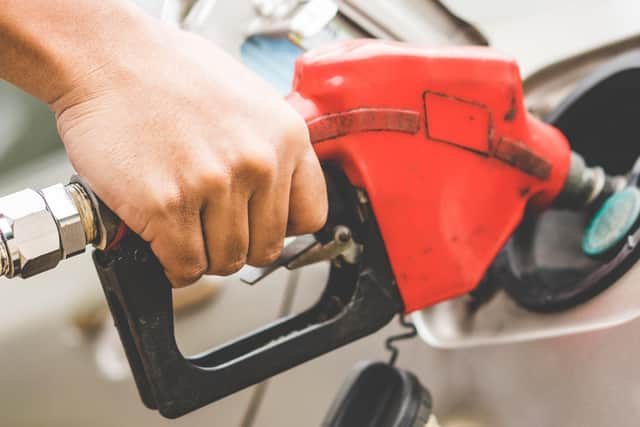Changes to red diesel: What records do you need to keep?
and live on Freeview channel 276
Guidance has been issued by HMRC which states it is likely there will be a period between the rules changing and the rebated fuel in the internal tank or engine being used up.
The length of time it takes to use this up will depend on the type of vehicle or machine, the size of its fuel tank and the rate of fuel consumption.
Advertisement
Advertisement
HMRC has acknowledged that, due to the requirements to maintain minimum fuel stock levels for safety reasons and operational requirements, fuel which has had full duty paid may be put into and mixed with existing stocks of rebated fuel in the tank.


This means there could be a red indicator in the tank beyond 1 April next year.
HMRC may carry out checks to confirm the correct fuel is being used in storage tanks, vehicles, machines and appliances.
If rebated fuel was put in before the rules changed, and is still being used up, you may be asked to provide evidence of this.
What records should you keep?
Advertisement
Advertisement
You should be able to show that you have been refilling with the correct fuel since the rules changed, by keeping invoices or receipts showing that you’ve purchased diesel or biofuels which have had full duty paid.
If you use a vehicle or machine for both allowed and non-allowed purposes after the rules change, you must keep records which demonstrate that you have flushed the tank, or the fuel being used has had full duty paid.
For example, if you hire a vehicle or machine that will be allowed to use rebated fuel for specific purposes (for example, agriculture), you will need to keep evidence to confirm the correct fuel has been put into the fuel tank.
HMRC will consider what purpose the vehicle or machine was being used for at the time of inspection and whether this was an allowed purpose.
Advertisement
Advertisement
Vehicles, including machines or appliances, found running on rebated fuel unlawfully will be liable to be seized.
Officers will have the discretion not to seize the vehicle if the user can demonstrate to HMRC, by providing invoices and receipts, that they did not put rebated fuel into the fuel tanks after the rules changed.
HMRC officers will take a pragmatic approach to enforcement and will consider the steps you take to switch to using diesel or biofuels fuel, which has had full duty paid.
They will target users who deliberately, or knowingly, use rebated fuel illegally by checking their receipts and invoice records.
Advertisement
Advertisement
If they have evidence or reason to believe you have put rebated fuel into your vehicle - including machines or appliances - intentionally or recklessly after the rules changed, you may be subject to civil or criminal sanctions.
If your vehicle is used for both agriculture and construction, you will need to flush out the tank to remove traces of red diesel when switching between uses, or opt for full duty-paid fuel for everything from 1 April 2022. You can read more here.